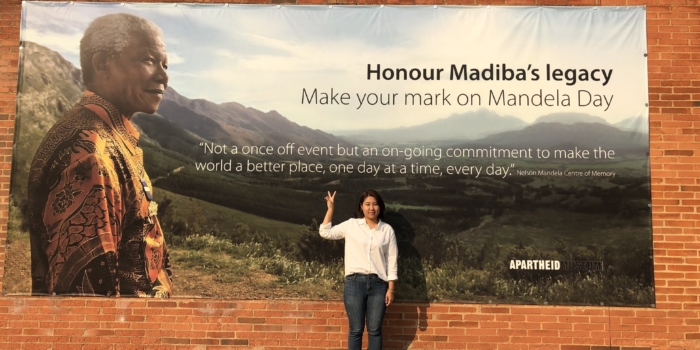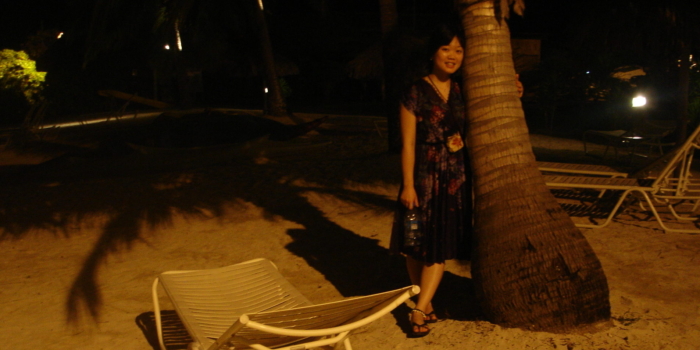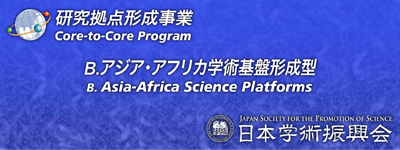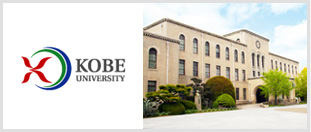Research Interest
- Technical and vocational education and training (TVET), skills development, monitoring and evaluation (M&E), early childhood care and education, education finance, quality assessment of education, student learning assessment, international curriculum analysis
Education
- Doctor of Philosophy, GSICS, Kobe University (November, 2019)
- Master of International Education, George Washington University (May, 2015)
- Master of Interpretation and Translation, Graduate School of Interpretation and Translation, Korea University of Foreign Studies (February, 2006)
- Bachelor of Psychology, Yonsei University (February, 2004)
Experiences
- Monitoring and Evaluation Consultant, UNESCO Afghanistan (March 2022 – Present)
- Project Officer, TVET, UNES (June 2021 – January 2022)
- Analyst, Skills Center, OECD (June 2019 – April 2021)
- Consultant, Education 2030 team, OECD (December, 2018 – June 2019)
- Intern, Early Childhood Education and Care Team, OECD (July – December, 2018)
- Researcher, Project on Sustainable Financing Mechanism for Early Childhood Care and Education for ASEAN Countries, UNESCO Bangkok/MEXT/Kobe University (Aug 2017 – Feb 2018)
- Consultant, Regional Study on Financing for Early Childhood Care and Education, UNESCO Bangkok/MEXT/Kobe University (January-July 2016)
- Intern, Education Policy Reform Unit, UNESCO Bangkok (July-Nov, 2015)
- Assistant to Executive Director, International Monetary Fund (Dec 2009-Feb 2015)
- Lecturer, Graduate School of Interpretation and Translation, Korea University of Foreign Studies (Sep-Dec 2009)
- Editor and International Relations Coordinator, Department of International Finance, Ministry of Strategy and Finance Of Korea (March 2006-June 2008)
Publications
- OECD (2021), OECD Skills Strategy Korea – Governance Review, OECD Publishing, Paris
- OECD (2021), OECD Skills Strategy Southeast Asia, OECD Publishing, Paris.
- OECD (2021), OECD Skills Strategy Mexico (State of Tlaxcala), OECD Publishing, Paris.
- Shuey, E. [et al, including Kim, N.] (2019). Curriculum Alignment and Progression between Early Childhood Education and Care and Primary School: A Brief Review and Case Studies. OECD Education Working Papers, No. 193, OECD Publishing, Paris.
- Lee, K., & Kim, N. (2018). Implications of Early Childhood Care and Development (ECCD) in the Era of Sustainable Development Goals (SDGs): Issues and Challenges. International Development and Cooperation Review, 10(3).
- Ogawa, K., [et al, Including Kim, N.] (2018). Sustainable Financing Mechanisms for Ensuring Early Childhood Care and Education (Ecce) in Lao PDR, Vietnam and Cambodia
- Ogawa, K., [et al, including Kim, N.] (2016). Paper Commissioned for The Financing for Early Childhood Care and Education (ECCE): Investing in the Foundation for Lifelong Learning and Sustainable Development. UNESCO Bangkok. Working Paper. Related link.
- Choi, J., [et al, including Kim, N.] (2015). A Smart Way of Coping with Common Core Challenges. Journal of Educational Issues. Vol. 1, No. 2. December 2015.
Lectures
- United Nations and SDGs Kobe University, Graduate School of International Cooperation Studies (GSICS), Kobe, Japan (January 2022)
- Introduction to OECD, Kobe University, Graduate School of International Cooperation Studies (GSICS), Kobe, Japan (September 2021)
- Human Capital Development, The George Washington University, Graduate School of Education and Human Development, Washington, D.C., USA (July 2020)
- Development Management, Kobe University, Graduate School of International Cooperation Studies, Kobe, Japan (June 2020)
- International Cooperation, Ritsumeikan University, College of International Relations Development, Kyoto, Japan (May 2020)
- Global Perspectives on Education and Economic Development, University of Hawaii, College of Education, Hawaii, USA (May 2020)
Presentations
- Kim, N. “Development of Action Plan,” Lecture delivered at Japan International Cooperation Agency (JICA) Training For Education Officers, JICA, Japan, July, 2016.
- Kim, N. “Financing of Early Childhood Care and Education in South Korea,” Paper Presented at the 8th Japan Society for the Promotion of Science (JSPS) Core-to-Core Program (Asia-Africa Science Platforms), Kobe, Japan, July, 2016.
- Kim, N. “Situation Analysis of Korea’s Early Childhood Care and Education,” Paper Presented At the 17th International Conference on Education Research (ICER), Seoul, Korea, October, 2016.
- Kim, N. “Integration and Financing of Early Childhood Care and Education in South Korea,” Paper Presented at the 27th Japan Society For International Development (JASID), Hiroshima, Japan, November, 2016.
Academic Association
- Comparative And International Education Society (CIES)
- The Japan Society for International Development (JASID)
- The Japan Comparative Education Society (JCES)
Languages
- Korean (Native), English (Fluent), Spanish (Advanced), French (Intermediate)
Message To Potential Candidates To Ogawa Seminar
I decided to join Prof. Ogawa’s Seminar to learn from his extensive expertise and experience in the field of international education, particularly in the area of human capital development and education finance. Prof. Ogawa is one of the most supportive professors I have met when it comes to both academic and professional growth of his students. In addition, his seminar provides unique opportunities to conduct internships, field work and research in various organizations and countries, which will lay important groundwork for students’ career trajectory in this field. My initial internship at UNESCO Bangkok and research projects that I could participate in thanks to Prof. Ogawa have certainly helped me to be selected for positions at other international organizations such as UNESCO and OECD. Another determining advantage is that Prof. Ogawa’s Seminar has produced numerous alumni who are actively engaged in the work of development, many of whom I have had the opportunity to meet in person. I recommend that you join our Seminar if you’re seeking opportunities to advance your studies in an environment that is both academically and professionally motivating.







